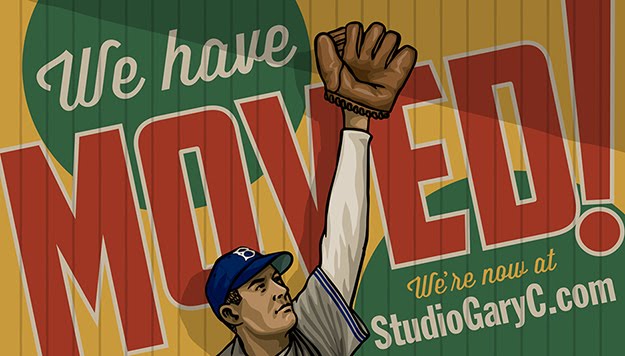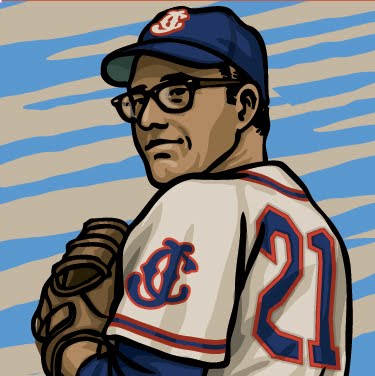Growing up a Mets fan in the 1970's, I had to hate Pete Rose. No one knew how to and did beat my Mets than Number 14. I'll always remember that scowl and look of utter confidence when he walked briskly up to the plate or the way he was always diving and running, perpetually in motion, a blur of grey and red as he squelched a late innings rally or hit a cheap grounder through a hole in the infield. I hated Pete Rose.
As I got older and read more about his outlook on the game I understood the guy more and came to really appreciate his motivation. There's that great quote from Pete that went something like "I'd walk through a fire wearing a gasoline suit to play baseball".
I hated Pete Rose. I hated him because he didn't play for my team.
Whitey Ford slumped in the shade of the dugout, fanning himself against the humidity with a scorecard. Out in the hot Florida sun his Yankees were playing the Cincinnati Reds in one of the last spring training games before the 1963 season would start. With the exception of a few key stars that the fans expected to see, both clubs allowed their regulars to rest before the long season began. Most of the guys on the field were Scrubini's - scrubs - guys trying to impress the scouts before they were tossed back to minors, most never to be seen again. The only thing that stirred the Yankee ace from his comfortable spot was when that gap-toothed Reds rookie came to bat.
Ford had saw the kid jawing with the Reds veterans Frank Robinson and Vida Pinson in batting practice and didn't like the ease in which he seemed to carry himself. No scrub should act like that and it stuck in Ford's craw all afternoon. It made him even angrier when the kid, who wore number 27 and was playing left field that day, chased a Mickey Mantle home run all the way to the wall and then made a point of climbing the fence in pursuit like a lemur, even though The Mick hit it 20 feet over his head. The kid was a showboat.
Now as that same kid trotted up to the plate Ford unfolded his scorecard and looked for his name. "27 Rose, Peter". The Yankee ace thought to himself that the name sounded like a loan shark or one half of a third-rate nightclub act, not a ball player. When Ford looked back to the plate he saw the kid had run up the count to three balls, one strike. When the next pitch came in a little low and away the rookie threw his bat towards the dugout and didn't jog but ran full on to first base. Like he was beating out a bunt or something. Who the heck did he think he was? Climbing a wall in vain might impress the local yokel Florida fans, but now he's just trying to show up the Yankee pitching. Ford tossed the scorecard down and stepped up to the top of the dugout and hollered loud enough so his pal Mickey could hear it in center field: "Hey! Look at Charlie Hustle!"
Peter Edward Rose was born on the West Side of Cincinnati in 1941. As a kid he wasn't a natural athlete and he was a bit on the slight side, but that didn't stop Rose. He made his freshman football team as a running back and played baseball any chance he got. When he was denied promotion to varsity football as a sophomore he blew off school work and failed the year. A few months of summer school would have made up for it, but Rose's father concluded that his boy would get more out of playing baseball in the summer and the repeated year would make Pete physically larger than other sophomores. To make himself more valuable on the ball field Rose taught himself how to hit from both sides of the plate and he learned to play second base and shortstop as well as catch. To build up his upper body the teenager swung a weighted bat six-hundred times a day - 300 left-handed and 300 right-handed. When his senior and fifth year in high school came, Rose was ineligible to compete in high school athletics. He joined an adult amateur league sponsored by the Bob's Big Boy restaurant chain and hit over .600. But he had a long way to go if he was going to be a pro ballplayer. When several of Rose's teammates received offers from major league teams, Rose graduated un-signed.
Fortunately Pete had a guardian angel - or more accurately - an Uncle Buddy. Rose's mother's brother was an ex-minor leaguer named Buddy Bloebaum who happened to be a part-time scout for the Cincinnati Reds. The old bird dog was able to convince the Reds to give the hometown kid a chance and soon his nephew had a Reds contract and $5,000 bonus. It wasn't much - one of his high school teammates received $75,000 to sign with the Washington Senators - but it was enough to buy a new Corvette to drive to his first spring training in.
Pete's first stop on the long road to the majors was in Geneva, New York in 1960. He hit .277 in his first season of pro ball and the Reds scouting reports made it look like he was destined to be a minor league lifer. He wasn't a smooth fielder, but he knocked down balls and got them to the right base any way he could. He wasn't a team leader in batting, but he did have more fire in his belly than any five guys on the Geneva bench. This first year he also displayed the kind of polarizing personal behavior that would mark his long career. Rose was brash, cocky and shot his mouth off at anyone. On the field he upset locals with the language he used which was clearly audible in Geneva's small ball park. With a little extra money than he was used to, Rose accumulated a garishly flashy wardrobe and chased girls like it was an Olympic sport. Still, something in his file made the Reds keep him on and they sent him to Tampa for 1961.
Rose spent the winter of 1960-61 loading heavy wooden crates of glass Coca-Cola bottles onto trucks. This labor combined with his daily weighted bat routine continued to add strength to his body. When spring came Rose charged right back into baseball. He was at the ball park before dawn each day, often badgering one of his teammates into coming with him to practice. At night Rose didn't drink or smoke but talked constantly about baseball with anyone who would listen. Playing in almost every game, Rose made 21 errors at second base, down from 36 his first year. At the plate he hit a nice .331 but showed no power. His swing was described as "ugly" and out of all the skills needed by a ball player only his speed and throwing arm were "above average". At the end of the season his scouting report still had him pegged as a career minor leaguer, but Rose had something that couldn't be rated on a scale - he had heart and an endless enthusiasm to play the game.
Nearly everyone who played with Rose in the early 1960's remarked on his relentless drive to play and improve himself. Tampa had several can't-miss big leaguers whose natural ability eclipsed Pete's, but the team's manager, ex-Reds ace Johnny Vander Meer, saw something unique in him. Pete's head-first slides and ever-improving switch-hitting made the old lefty convince the Reds front office to not only keep the kid from the West Side but promote him further up the farm system.
The Reds sent Pete to the Class A (today's AA) Macon Peaches. Now playing at a much higher level, Rose bore down even harder. Though the Peaches had players far more talented than Pete, the kid from Cincinnati remained as cocky as ever, never relenting in his drive to become a better player. Still, there was only so much one can do to improve on God-given athletic ability - but this was Pete Rose we're talking about here.
When his fielding skills only got him so far, Pete spent hours before home games grooming the area around his second base position to give himself every possible advantage. Through trial and error Rose learned he fielded better when the dirt was thick and a little on the muddy side. His fielding average slightly improved and his offensive numbers made the Reds second-guess their evaluation of Rose as a career minor leaguer. Throw in his ever present hustle and the Reds invited him to spend spring training 1963 with big club.
But nothing was ever easy for Pete Rose. As was the custom back then, the veterans did everything possible to make life difficult for a cocky hopeful like Rose. It didn't help that Pete was overflowing with swagger and confidence, dressed flashy and chased anything in a skirt. At first the other ball players looked at the hopeful as a show-off and a rube. Gradually however, Rose began winning over teammates and Reds manager Fred Hutchinson - all came to the realization that this kid wasn't showboating - he really wanted to win ballgames at any cost.
Perhaps no story from the spring of 1963 sums up Pete Rose better than the one that earned him the nickname "Charlie Hustle". Whitey Ford's wise crack must have made quite a few of the veterans laugh, but Rose never let it bother him - in fact he always saw it as proof of his enthusiasm for the game. In the end the kid from Cincinnati's West Side had the last laugh - he made the Reds out of spring training and at the end of the '63 season was voted the National League's Rookie of the Year.
I hated Pete Rose. I hated him because he didn't play for my team.
Those who have met me in person know I'm not the kind of guy to toot my own horn. In fact, much to my detriment, I'm lousy about promoting myself. That's why it's hard for me to ask this, but this is something that needs to be done: if you bought a copy of The League of Outsider Baseball, can you please take the time to write a review of it on Amazon, Barnes and Noble or Good Reads? It would mean a lot to me and most importantly give future publishers an idea of what the book reading public thinks of my work. Almost all of the existing reader's reviews have been flattering, but every once in a while some crackpot writes a clunker out of jealousy or boredom. I for one often look at the reviews on those sites before I spend my money on a book. Reviews aren't the only thing I rely on in my purchasing process but it's certainly a factor, and that's why I'm asking you to please take the time to write your thoughts about my work.




